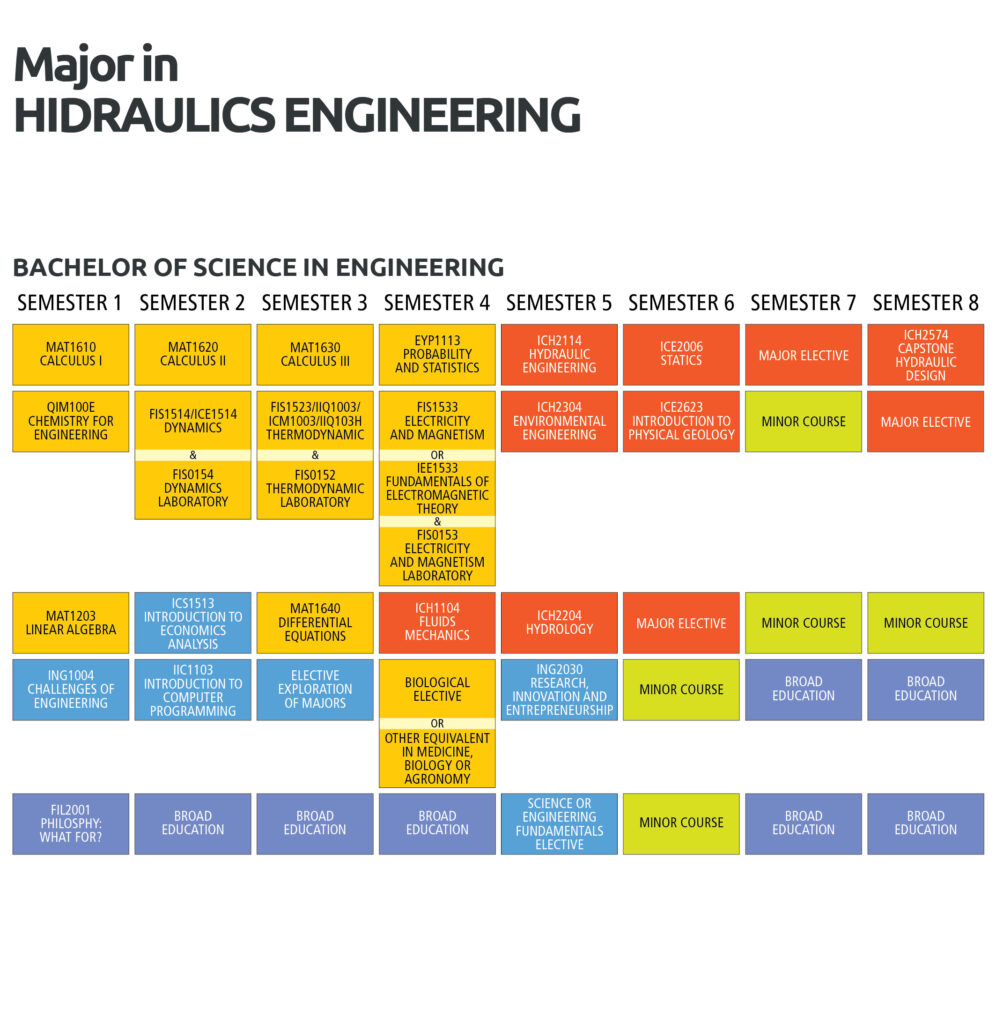

The Major in Hydraulic Engineering is structured around three key principles: the theoretical fundamentals of the basic and earth sciences; the analysis and evaluation of water resources; and the application of insights and design to hydraulic systems.
These courses will allow students to obtain a general vision of the Major in Hydraulic Engineering and the areas of knowledge that are studied.
*Review the specific requirements for each minor in the respective curriculum.
The graduates of Bachelor of Science in Engineering with a Major in Hydraulic Engineering find employment in productive sectors where water is a fundamental input or element, such as in mining, agriculture, electricity generation, industry, etc. Graduates also have opportunities to work within the technical divisions of government ministries, such as Public Works, Housing and Urban Planning, Environment, and Energy, as well as in local municipalities and consultancies for water, construction, sanitation, and in environmental engineering projects, among others.
“The Major in Hydraulic Engineering will allow you to fully grasp the relevance of water and its purpose in the economic and social development of the country, especially through infrastructure and technologies that strongly incorporate environmental protectionism,” Cristian Escauriaza.

Contact: majorhidraulica@ing.puc.cl
This recommended curriculum is subject to modifications in accordance with current academic planning at the time of course enrollment. Stay informed as to the most recent updates to the Academic Plan.